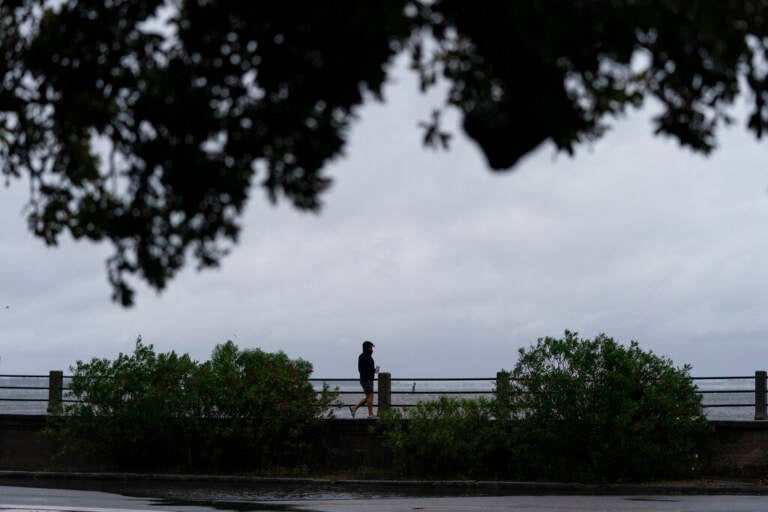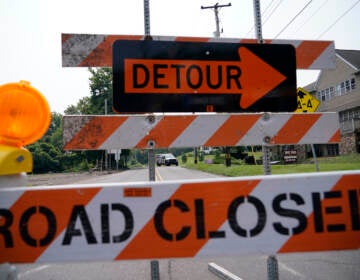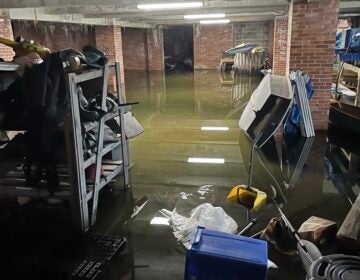FEMA tells mid-Atlantic residents to ‘be ready’ as peak hurricane season nears
“Whether you're in Rehoboth Beach or Cape May… you need to have a plan,” said FEMA Regional Administrator MaryAnn Tierney.

File photo: A person walks along the wall as effects from Hurricane Ian are felt, Friday, Sept. 30, 2022, in the Battery of Charleston, S.C. (AP Photo/Alex Brandon)
Peak Atlantic hurricane season is approaching. Federal emergency management officials say even people in the Philadelphia region should be prepared.
“You need to have a plan for what you’re going to do if a hurricane is coming our way,” said FEMA Regional Administrator MaryAnn Tierney. “Whether you’re in Rehoboth Beach or Cape May, you need to know where you’re at risk. You need to have a plan for what you’re going to do.”
Officials with the National Oceanic and Atmospheric Administration forecast an above-normal Atlantic hurricane season this year, with 14 to 21 named storms total, six to 11 of them hurricanes. Between two and five could be major hurricanes.
Five named storms have formed in the Atlantic basin so far this year. Peak hurricane season runs from mid-August through mid-October.
“Regardless of however many systems there are in a given year, it really only takes one to cause devastation in any given area,” said David Manning, a meteorologist with the National Weather Service.
The mid-Atlantic has a history of relatively minor hurricane impacts compared to parts of the country like Florida and the Gulf Coast, Tierney said. She worries that means people here may be less prepared.
“The thing I’m most concerned about when it comes to severe weather is apathy, because we’re not practiced at hurricanes,” Tierney said.
But even when the mid-Atlantic is not hit directly by a hurricane or tropical storm, the remnants of these storms moving up the coast can still wreak havoc. At least five people died and hundreds of homes were damaged or destroyed in Pennsylvania by the remnants of Hurricane Ida in 2021.
Scientists have observed an increase in heavy rain across the country in recent decades, particularly in the Northeast. Heavy downpours are expected to get more frequent and intense in the future, as warmer air can hold more water vapor.
“We’re just as at risk as areas in the southern part of the United States from hurricanes, whether it’s the flooding, the wind, or the storm surge,” Tierney said. “We’re also at risk for flash flooding [and] tornadoes.”
Tierney said FEMA and its local governmental partners have been preparing for hurricane season, and now individuals should do the same.
FEMA recommends developing a plan with your household for where you’ll go if you’re told to evacuate, putting together a home disaster kit and go-bag with essentials like important documents, medications, and pet food, downloading a weather app, and signing up for local emergency alerts.
“We need you to be ready,” Tierney said.

Get daily updates from WHYY News!
WHYY is your source for fact-based, in-depth journalism and information. As a nonprofit organization, we rely on financial support from readers like you. Please give today.









